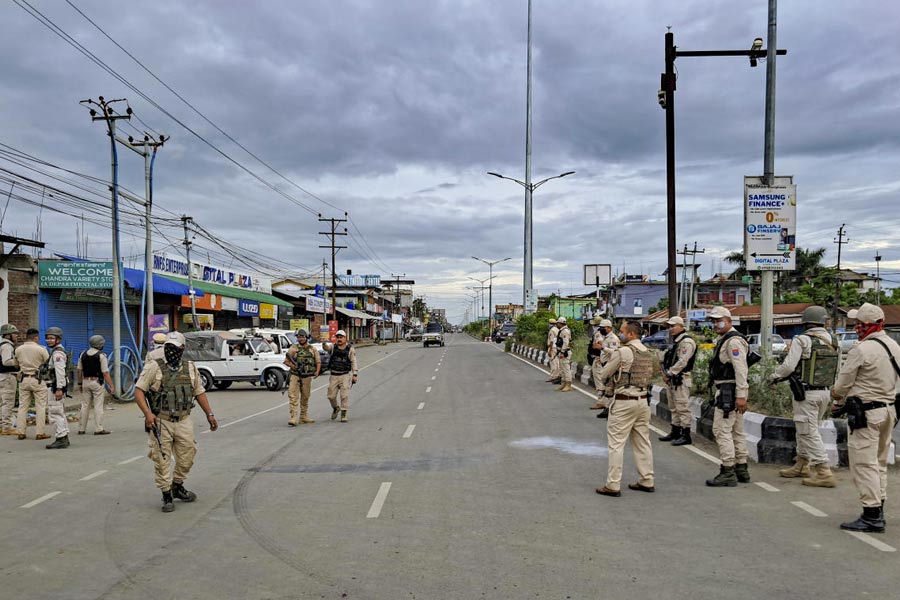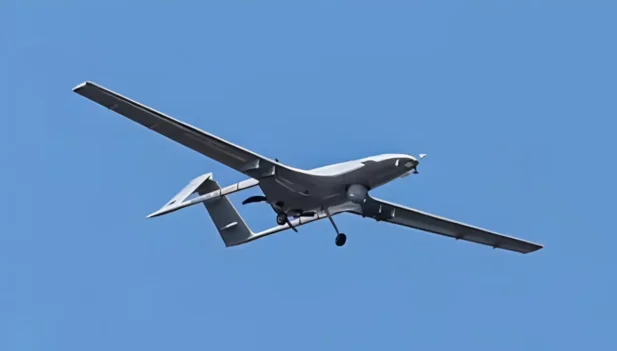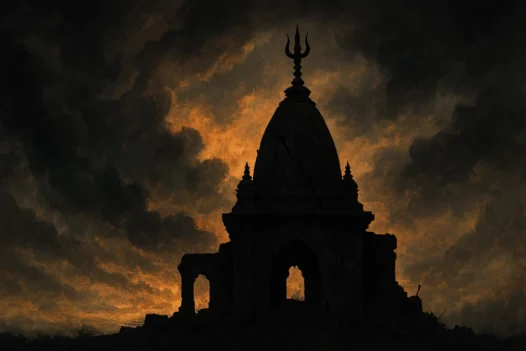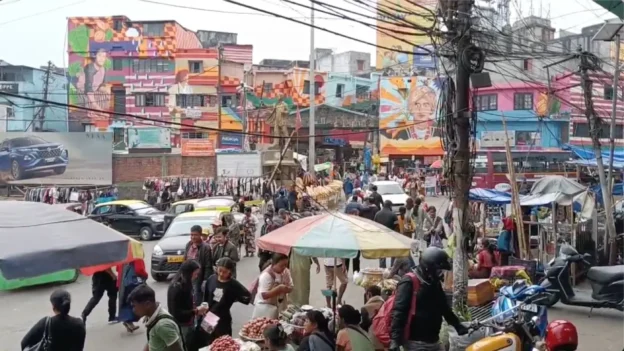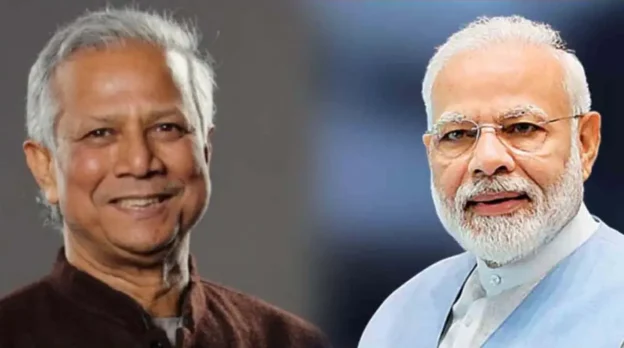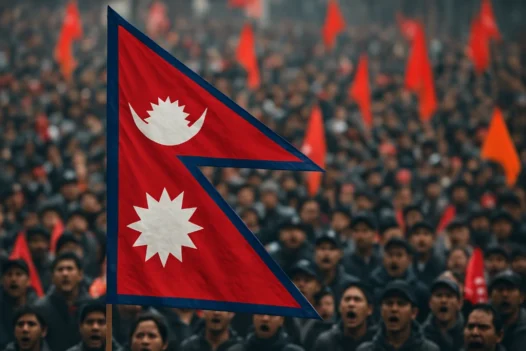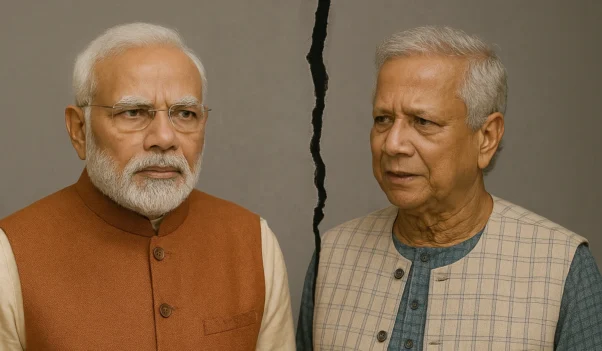The violence in Manipur, which has raged on since May 2023, shows no signs of abating. The state government under Chief Minister N Biren Singh continues to struggle in addressing the crisis, while the lack of cohesive leadership and an impartial approach to justice raises serious concerns about the prospects for peace. Recent developments have revealed deepening political divides, with even Singh’s own political support base beginning to fracture, and questions about the government’s handling of the violence continue to grow.
On November 18, 2024, Singh’s cabinet held a critical meeting that included just 26 of the state’s 60 ruling MLAs—well below the minimum 31 required for a quorum. The low attendance has further fuelled speculation that the Chief Minister’s grip on power is slipping. In fact, several political observers believe the “writing on the wall is clear,” suggesting that Singh’s tenure may be nearing its end. This sentiment is echoed by opposition parties and even members within Singh’s own ruling coalition. Keisham Meghachandra, a Congress MLA from Manipur, has stated that he and other party MLAs are willing to step down if the people of Manipur demand a new mandate to restore peace.
This call for change is not without its basis. Former Chief Minister O Ibobi Singh, a senior Congress leader, also suggested that Manipur’s lawmakers might be willing to resign en masse to pave the way for a new leadership, should the crisis continue unabated. His comments followed a stern ultimatum from the influential Meitei civil society group, COCOMI, which has demanded that state leaders take decisive action to resolve the crisis or step down.
Despite these political signals, the state government’s actions have done little to address the core issues of the violence. The cabinet meeting on November 18 condemned the brutal killings of six Meitei women and a child in Jiribam and promised to launch a “mass operation” against “Kuki militants” responsible for the deaths. At the same time, the government has handed over the investigation into these killings, along with the murder of a 32-year-old Hmar woman and the killing of a Meitei woman farmer, to the National Investigation Agency (NIA).
While these decisions may seem like an attempt to take swift action, they reveal an unsettling pattern of bias in the government’s responses. The cabinet resolution squarely blames “Kuki militants” for the deaths in Jiribam, but conspicuously avoids holding “Meitei militants” accountable for similar atrocities.
Many among the Hmar-Kuki-Zomi community feel that the gruesome killing of Zosangkim Hmar, a 32-year-old mother of two, who was allegedly raped and burned to death by Meitei militants, has yet to receive a similarly forceful condemnation from the state government. Kuki groups have pointed to the involvement of the radical Meitei group, Arambai Tenggol, in this atrocity. News reports have quoted the Indigenous Tribal Advocacy Committee (ITAC) as claiming that 17 houses were torched in Zairawn village by Arambai Tenggol, and that the militants were firing automatic weapons as they moved through the village, trapping and killing civilians.
This allegedly selective approach to justice has exacerbated tensions between the various ethnic communities in the state. The violence is increasingly seen as not just a matter of ethnic conflict, but as a failure of the state to address the grievances of marginalized groups like the Kuki, Hmar, and Zomi communities. These groups have pointed out that while the killing of Meitei civilians is swiftly condemned by the government, there has been little or no official acknowledgment of the many atrocities committed against Kuki and Hmar civilians. For example, Zomi-Kuki residents of Churachandpur allege that the abduction and murder of Langel Lallianmang, a father of three from Vengnuam in Jiribam, and numerous other killings of women and children from the Zomi-Hmar-Kuki communities, have largely gone unaddressed by the state.
This alleged imbalance in the government’s response has raised serious questions about the legitimacy of its actions. Political analysts argue that the state’s reluctance to equally condemn violence from both sides of the ethnic divide only serves to deepen mistrust and prolong the conflict. The violence is complex and cannot be solved by assigning blame to one side while ignoring the other. Both Meitei and Kuki militias have been accused of committing atrocities, and videos and other evidence submitted by Kuki-Zo groups to various agencies must be fully investigated to ensure accountability.
It is clear that Chief Minister Biren Singh has failed to address the root causes of the violence, which erupted on May 3, 2023, and has claimed over a hundred lives since. His failure to restore peace has led to growing calls for his resignation, with several NDA partners, including the Meghalaya-based National People’s Party (NPP) led by Conrad Sangma, pulling out of the coalition. Despite this pressure, Singh has shown little willingness to step down or even take moral responsibility for the ongoing violence.
The recent cabinet meeting, convened after strong messages from New Delhi urging the state to take control of the situation, was attended by only 26 of the ruling MLAs, with 34 others—including several from the BJP—abstaining. This is a clear sign of the political instability within the ruling party. Insiders suggest that Singh’s leadership is increasingly seen as untenable, and some are questioning why he should continue in power given the central role his administration has played in the unfolding crisis.
Critics argue that the government’s decision-making is increasingly marked by partisanship. While the focus on punishing the perpetrators of the killings in Jiribam is understandable, the silence on the killings of the Hmar woman and the 10 Hmar “village volunteers,” who were allegedly killed in an encounter with security forces on November 11, suggests a lack of impartiality. Even though the NIA’s involvement in investigating the killings of the Hmar and Meitei women has been welcomed, there is widespread demand for a similar approach when it comes to investigating killings of Zomi, Kuki, and Hmar civilians since the violence erupted.
The deaths of the 10 Hmar men identified by the government as militants, who were killed in an encounter with security forces, have further fuelled anger and frustration in the Kuki-Hmar communities. The images of their gruesome bodies, which were flown to Lamka (Churachandpur) on November 16, have become a symbol of the growing injustice faced by these communities. However, the lack of autopsy reports and the refusal to return the bodies to their families for proper burial has compounded the sense of injustice. In response, the Joint Philanthropic Organisation (JPO), supported by student bodies like the Zomi Students’ Federation and the Kuki Students’ Organisation, organized an “empty coffin” rally in Lamka to protest the failure to secure justice for the victims.
The killing of these 10 men have been shrouded in controversy. Security forces have claimed that the men were armed militants, citing evidence of assault rifles and RPGs. However, the manner in which the killings were carried out—described by some as a violation of international law—has raised alarms. A young lawyer from Manipur pointed out that such actions are not only morally indefensible but also violate the Geneva Convention, to which India is a signatory. The principle of “jus in bello,” which prohibits the mutilation of bodies during armed conflict, has been flagrantly ignored in these incidents.
The violence in Manipur has reached a dangerous crossroads. The central government must step in urgently to address the growing divide between the Meitei and Kuki-Hmar-Zomi communities. A solution will not be found through partisan politics or by assigning blame to one side while ignoring the atrocities committed by the other. Until both sides receive justice, and until the state government demonstrates true impartiality in its response, the crisis in Manipur is unlikely to end. The latest round of violence, triggered by the attack on a Hmar village in Jiribam allegedly by Meitei armed groups, threatens to spiral further unless decisive action is taken by both the state and central governments to prevent it.

